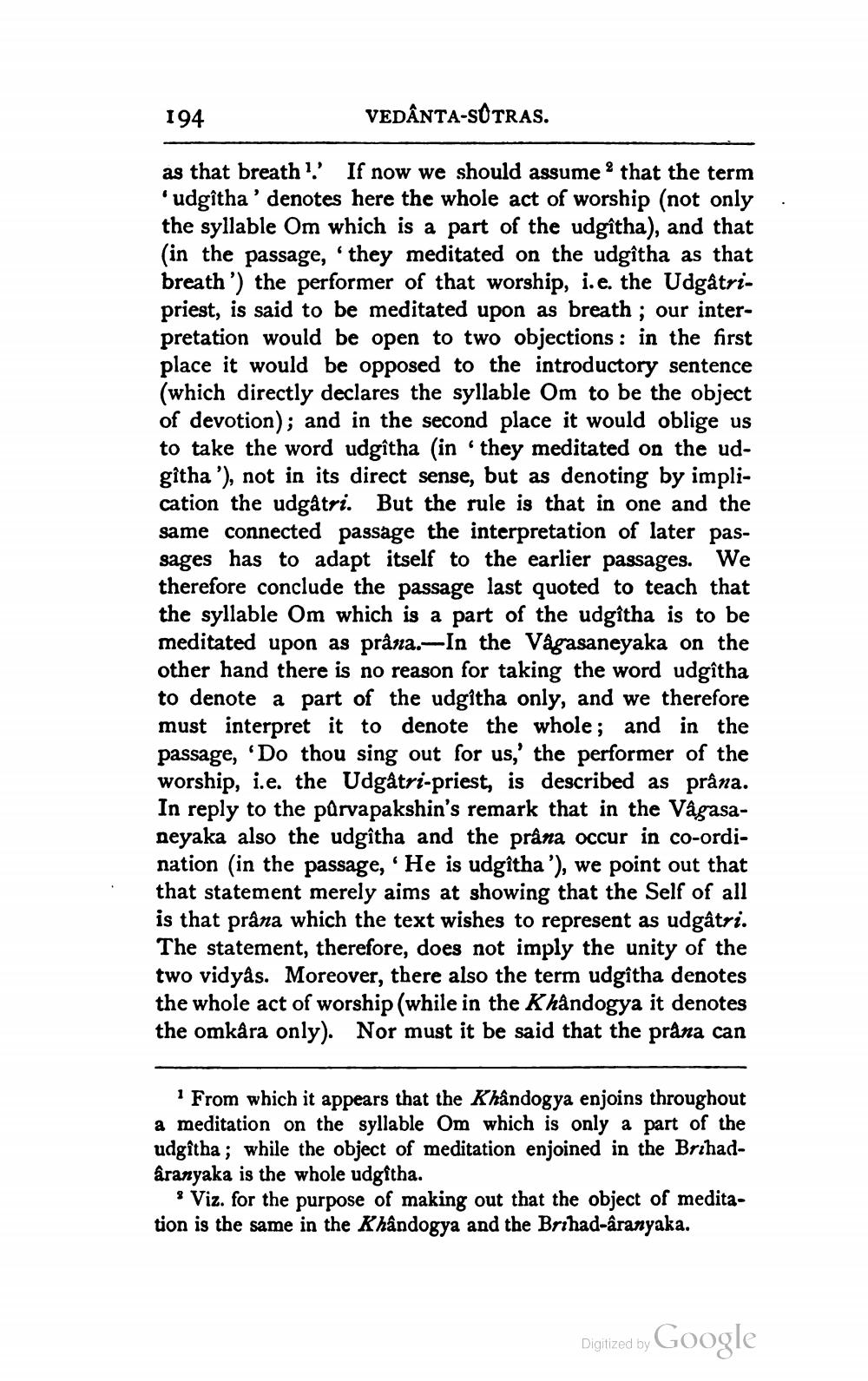________________
VEDANTA-SUTRAS.
as that breath '.' If now we should assume 2 that the term 'udgîtha' denotes here the whole act of worship (not only the syllable Om which is a part of the udgîtha), and that (in the passage, 'they meditated on the udgîtha as that breath') the performer of that worship, i.e. the Udgâtripriest, is said to be meditated upon as breath; our interpretation would be open to two objections: in the first place it would be opposed to the introductory sentence (which directly declares the syllable Om to be the object of devotion); and in the second place it would oblige us to take the word udgîtha (in 'they meditated on the udgîtha'), not in its direct sense, but as denoting by implication the udgâtri. But the rule is that in one and the same connected passage the interpretation of later passages has to adapt itself to the earlier passages. We therefore conclude the passage last quoted to teach that the syllable Om which is a part of the udgîtha is to be meditated upon as prâna.-In the Vagasaneyaka on the other hand there is no reason for taking the word udgîtha to denote a part of the udgitha only, and we therefore must interpret it to denote the whole; and in the passage, 'Do thou sing out for us,' the performer of the worship, i.e. the Udgâtri-priest, is described as prâna. In reply to the pûrvapakshin's remark that in the Vâgasaneyaka also the udgîtha and the prâna occur in co-ordination (in the passage, 'He is udgîtha '), we point out that that statement merely aims at showing that the Self of all is that prâna which the text wishes to represent as udgâtri. The statement, therefore, does not imply the unity of the two vidyâs. Moreover, there also the term udgîtha denotes the whole act of worship (while in the Khandogya it denotes the omkåra only). Nor must it be said that the prâna can
194
1 From which it appears that the Khandogya enjoins throughout a meditation on the syllable Om which is only a part of the udgîtha; while the object of meditation enjoined in the Brihadâranyaka is the whole udgîtha.
Viz. for the purpose of making out that the object of meditation is the same in the Khândogya and the Brihad-âranyaka.
Google
Digitized by




